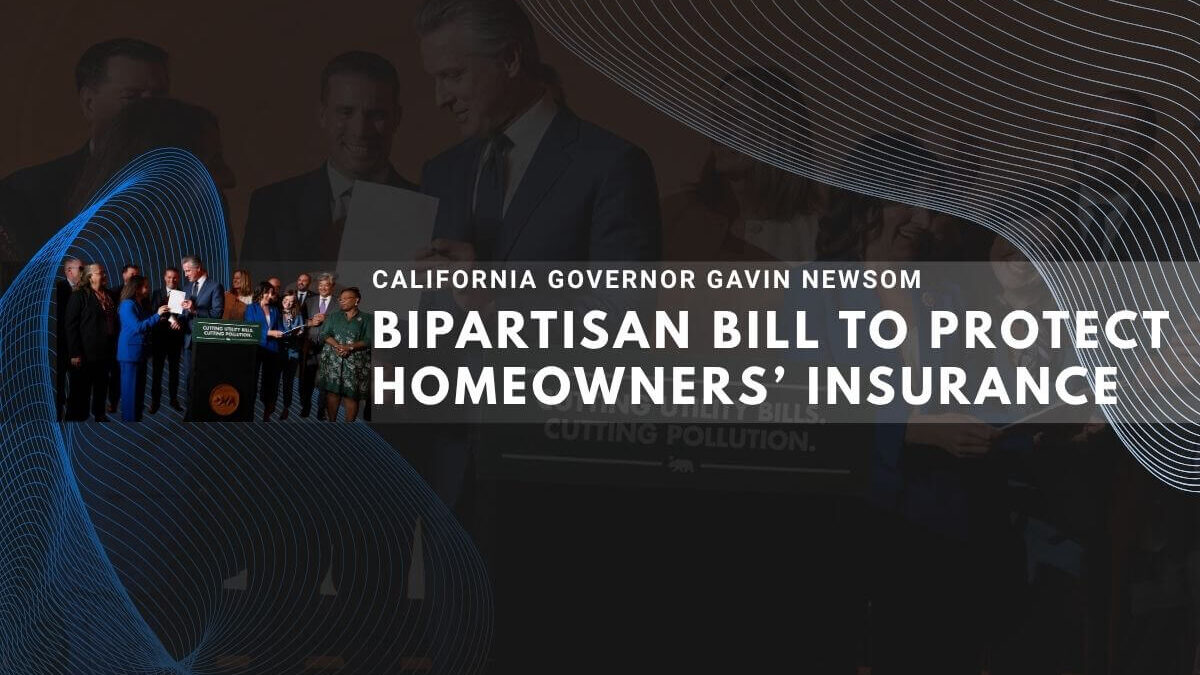California Governor Gavin Newsom signed a bipartisan bill that aims to protect homeowners’ insurance by ensuring the state’s home insurer of last resort doesn’t run out of funds after a natural disaster.
Understanding the FAIR Plan Challenges
The California FAIR Plan is a state-mandated insurer of last resort for homeowners in high wildfire risk areas where private insurers have withdrawn. As of mid-2025, the FAIR Plan covers roughly 600,000 homes, reflecting a surge due to insurers retreating from the market amid escalating wildfire threats. [1][2][3]
- The Plan’s financial exposure is significant: losses from the January 2025 Palisades and Eaton wildfires alone are estimated at $4.1 billion. [2][6]
- The FAIR Plan faces a $900 million retention threshold per wildfire event before reinsurance kicks in, with recent claims exceeding this, straining its resources.
- In 2024 and 2025, the Plan levied assessments on participating insurers to cover losses, pushing costs onto the wider insurance market.
Key Legislative Solutions in 2025
Assembly Bill 226, the FAIR Plan Stabilization Act, signed by Governor Gavin Newsom in October 2025, introduces crucial financial tools for the Plan’s sustainability: [5][4][3]
- Authorization to borrow via state-backed loans or bonds to enhance liquidity after catastrophic losses.
- [2][3]
- Ability to spread claims payments over multiple years rather than face immediate full payout demands.
- Board expansion to include two legislative non-voting members, improving oversight and transparency.
Notably, these financial mechanisms are structured so they do not constitute state debt, protecting taxpayers from direct financial liability. The bill has bipartisan support and endorsement by Insurance Commissioner Ricardo Lara.
Broader Context: Wildfires and Insurance Market Dynamics
California’s wildfire landscape continues to worsen due to prolonged drought and climate change, with 15 of the state’s 20 most destructive wildfires occurring since 2015. The increasing severity and frequency of fires have driven insurers to limit new policies or exit high-risk markets entirely. [2][4][6]
- Insurers are now required to incorporate wildfire risk modeling sanctioned by the Department of Insurance to justify premium and coverage decisions. [1][5]
- The state offers expanded regulatory flexibility to insurance companies to adjust premiums and pass on reinsurance costs to consumers.
- Efforts are underway to stabilize market availability, with some insurers signaling renewed willingness to write policies in wildfire-prone areas. [2][4]
Impact and Future Outlook
The new FAIR Plan law seeks to reduce insolvency risk and avoid costly, immediate bailouts that trigger premium spikes across California’s home insurance market. It aims to ensure homeowners relying on the FAIR Plan continue to have coverage during catastrophic wildfire events, while introducing safeguards for market resilience. Governor Newsom emphasizes the urgency driven by climate-fueled firestorms worsening over time. [1][3][5]
Insurance Commissioner Lara’s Sustainable Insurance Strategy complements the legislation by mandating insurance availability and expanding coverage options in wildfire areas. However, challenges remain with underinsurance and market retreat as wildfire risk grows, signaling continued adaptation will be necessary.
